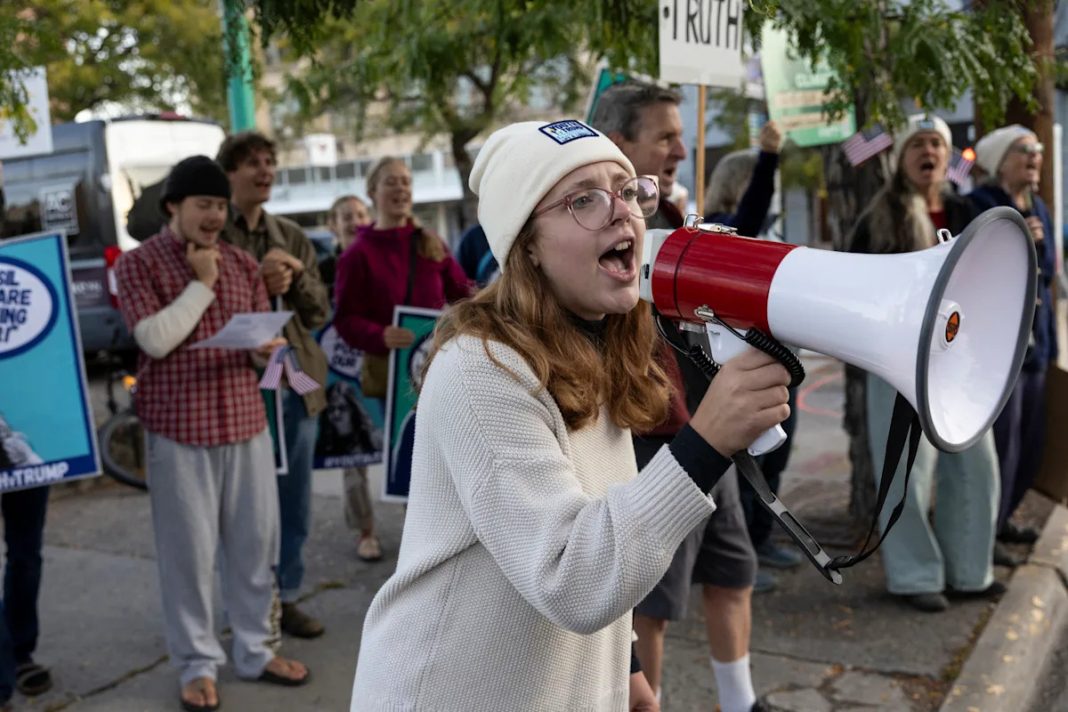BILLINGS, Mont. (AP) — A federal judge on Wednesday dismissed a lawsuit from young climate activists seeking to block President Donald Trump’s executive orders promoting fossil fuels and discouraging renewable energy.
The activists said the orders would worsen global warming, threatening their lives and violating their constitutional rights.
Attorneys for the U.S. Department of Justice and more than a dozen states had urged Judge Dana Christensen to dismiss the case.
The plaintiffs included youths who were victorious in a landmark climate trial against the state of Montana. Christensen said in a 31-page order that the plaintiffs had shown “overwhelming evidence” that climate change was affecting them and will worsen as a result of Trump’s orders.
But the judge said their request to block Trump’s orders was an “unworkable request” that would have required scrutiny of every climate related action taken since the Republican came into office. Christensen said that instead of the courts, the plaintiffs must make their case “to the political branches or the electorate.”
Legal experts had said the young activists and their lawyers from the environmental group Our Children’s Trust faced long odds. The Montana state constitution declares that people have a “right to a clean and healthful environment.” That language is absent from the U.S. Constitution.
A previous federal climate lawsuit in Oregon from Our Children’s Trust went on for a decade before the U.S. Supreme Court declined to consider their final appeal this year.
Christensen cited that case in concluding that the plaintiffs in Montana lacked standing to sue the government. That is because they failed to demonstrate their request for judicial intervention was likely to fix their injuries through actions that are within the court’s power, the judge wrote.
Only a few other states, including Illinois, Pennsylvania, Massachusetts and New York, have environmental protections enshrined in their constitutions.
Carbon dioxide, which is released when fossil fuels are burned, traps heat in the atmosphere and is largely responsible for the warming of the climate.
Montana’s Supreme Court upheld the 2023 trial outcome last year, requiring officials to more closely analyze climate-warming emissions. To date, that has yielded few meaningful changes in a state dominated by Republicans.

